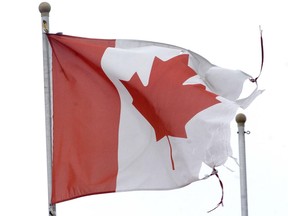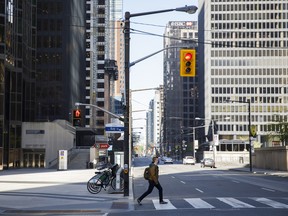
In a recent interview with Financial Post’s Larysa Harapyn, Desjardins economist Marc Desormeaux shared his concerns about the looming recession and the state of the economies and budgets of Canada’s provinces.
The Looming Recession
Desormeaux began by discussing the current economic climate in Canada. "We’re heading into a recession in the second half of 2023," he said confidently. When asked what factors contributed to this prediction, Desormeaux pointed out that the global economy is experiencing a slowdown, and Canada’s export-dependent economy is feeling the effects.
Provincial Economies and Budgets
Harapyn then shifted the focus to the provinces, inquiring about their economic situations. Desormeaux explained that while some provinces are better equipped to handle the recession than others, none of them will be entirely immune. "The provinces with the most debt will be hit hardest," he warned.
He went on to analyze each province’s economic situation:
Ontario
"Ontario is facing a significant challenge due to its high debt levels and declining manufacturing sector."
Quebec
"While Quebec has some economic advantages, such as its strong service sector, it too will feel the effects of the recession."
British Columbia
"BC is in a relatively better position than other provinces, but even it will experience some negative impacts from the slowdown in global trade."
Alberta
"Alberta’s energy industry is expected to decline further, making it vulnerable to the economic downturn."
Saskatchewan and Manitoba
"These two prairie provinces are more resilient due to their diversified economies, but they will still face challenges."
Why Canada Needs a Strong Central Bank
Desormeaux emphasized the importance of a strong central bank in navigating an economic recession. "The Bank of Canada must be proactive in setting interest rates and implementing policies to mitigate the effects of the slowdown," he said.
He also highlighted the need for fiscal responsibility at both the federal and provincial levels: "Governments must work together to ensure that their budgets are balanced and that they’re investing wisely in infrastructure and other key areas."
What Can Canadians Expect?
As Canada enters the recession, Desormeaux cautioned that Canadians can expect:
- A decline in consumer spending
- Increased unemployment
- Reduced investment
- Decreased economic growth
However, he also noted that there are steps individuals can take to prepare for and navigate this challenging period:
- Build an emergency fund
- Reduce debt
- Diversify investments
- Stay informed about economic developments
Conclusion
The interview with Desormeaux left little doubt that Canada is indeed heading into a recession in the second half of 2023. While some provinces may be better equipped to handle this challenge than others, all will face significant difficulties. By understanding the factors contributing to this recession and taking proactive steps, Canadians can better prepare themselves for what lies ahead.
Additional Resources
- Federal Budget: Understanding the impact of the federal budget on provincial economies
- Central Bank Policy: How the Bank of Canada’s policies affect Canada’s economic situation
- Provincial Economies: In-depth analysis of each province’s economy and potential recession impacts
Stay informed about the latest developments in Canadian economics by following reputable sources and staying up-to-date with the latest news.

















